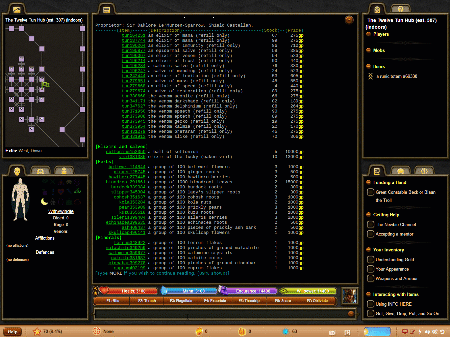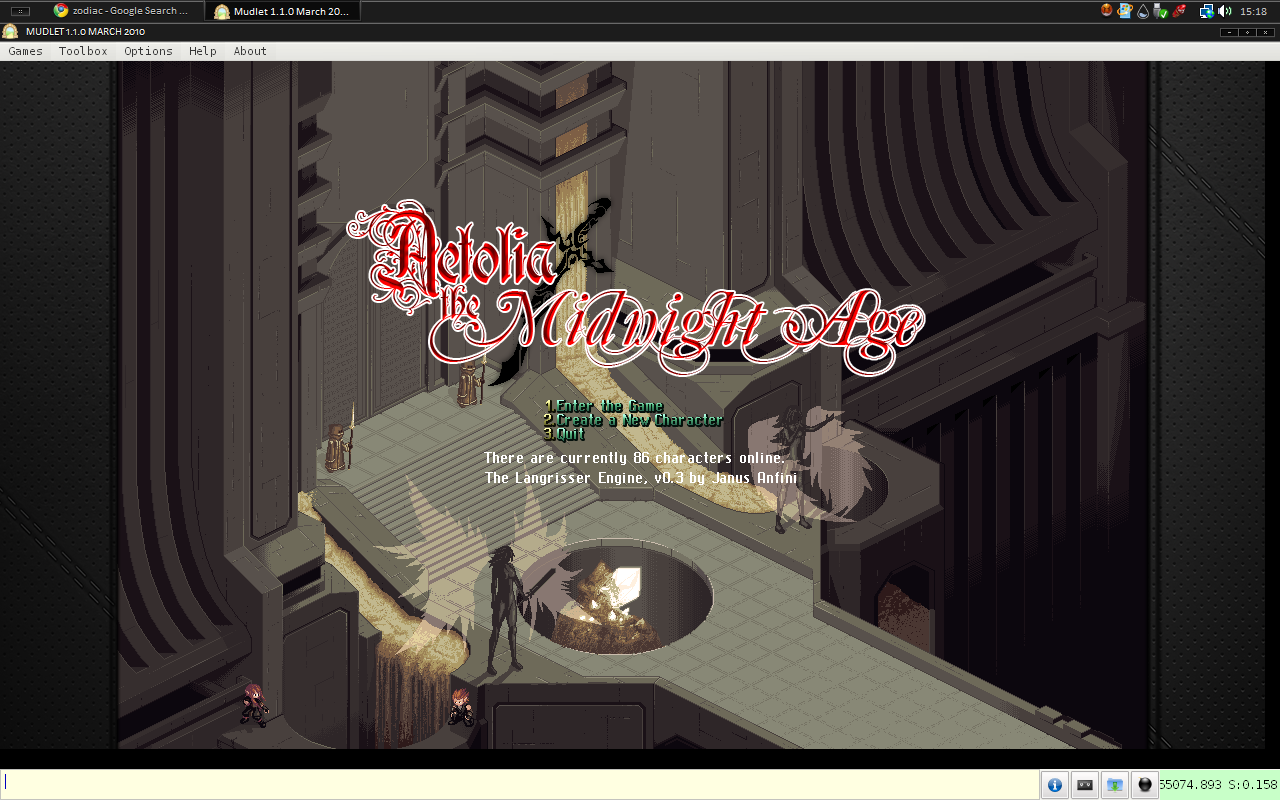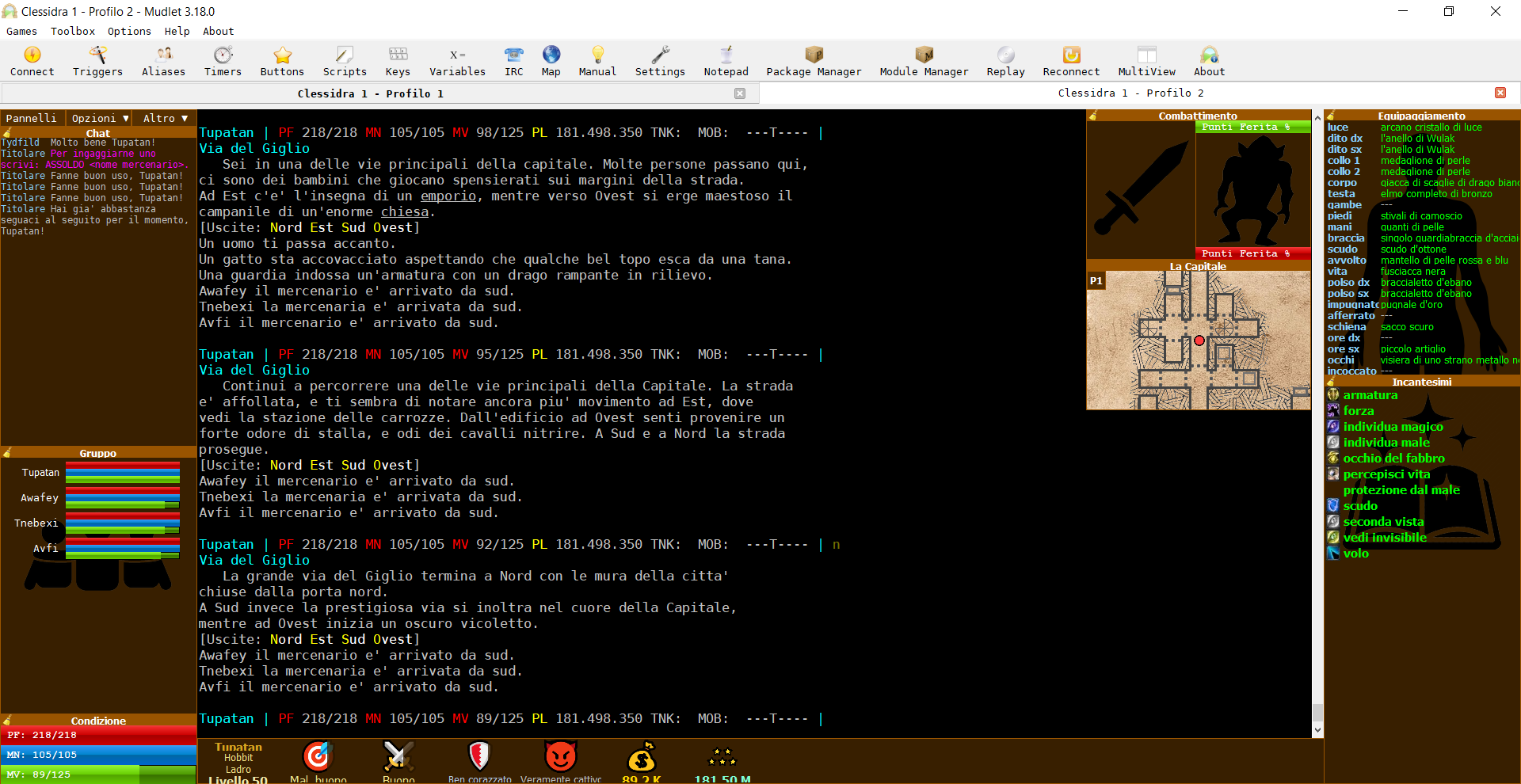


Ability to read and convert rom area files GameEdit - The Game Settings Editor Gameedit allows the editing of a large number of game parameters, text fields and values. MSP (MUD Sound Protocol) support MCCP (MUD Compression Protocol) support Fully Customizable Colour System, with mudwide templates Support for ANSI, IRC and HTML colouring conventions OLC (online construction), many MXP driven - including the following in game editors: Game editor (gameedit, customize the behaviour of a number of game features - more on this later!) Area editor (aedit) Room editor (redit) Mobile editor (medit) Object editor (oedit) Help editor (hedit) Race editor (raceedit) Class editor (cedit) Clan editor (clanedit) Skill Group editor (skgrpedit - for editing things like 'mage basics') Spells/Skills editor (sedit) Social editor (socedit) Ban editor (banedit) Mix editor (mixedit) Deity editor (dedit) Herb editor (herbedit) Command editor (comedit) Mobile Program editor (mpedit) A number of aspects within the OLC editors are automated: Automatic saving of olc work every 15 minutes and prior to hotreboots, reboots and shutdowns Automatic balancing of mobs when you set their level, (the stats can then be overridden) The autobalance parameters are easily customized for a muds requirements (see system/mob*.txt within the support files download) Automatic adjustment of racial flags, body parts, form etc when you set a mobs race Ability to rebalance all the mobs in an area/vnum range with the autobalance command Ability to adjust room flags on a range of vnums with the setrooms command.
MUDLET TIMERS FULL
Some of Dawns features include: Compiles and runs under Unix (Linux, FreeBSD, OpenBSD), Windows (Cygwin and Microsoft Visual C++), and OS X Full MXP (MUD eXtension Protocol) support - probably the most advanced MXP server on the net.
MUDLET TIMERS FREE
Thus it has a similar "look and feel" to the Diku/ROM styles of MUD, and of course it is free :). Work began on the Dawn codebase in 1997, and it was first publically released at the end of 2000. Kalahn), which was originally based on the ROM codebase. The sample ones are from a long-dead game called Lithmeria.Ĭheatsheet = Geyser.Label:new(for _, cmdt in ipairs(t) do if cmdt then s = string.format(], cmdt, cmdt) else s = "".cmdt."" endendcheatsheet:echo("".ncat(s, "").The Dawn of Time is a MUD codebase developed by Michael Garratt (a.k.a. This is how I get the room id and area and store it within my own system and blink the rooms.Ĭreate a label cheatsheet with your combat aliases. + perhaps Mudlet in future will give this us anyway, sorted by relevancy transform the kv table into a table of tables for cleaner code. Local rooms = mmp.searchRoomExact(roomname)


Very useful for PK.Īll credit goes to Tysandr who wrote this in Imperian. I use this when I farsee or who b enemy targets and it will blink up the room they are located in. TempTimer( durationn + 1, function() unHighlightRoom( room ) end )ĮndA room blinker. TempTimer( i+0.5, function() unHighlightRoom( room ) end ) TempTimer( i, function() highlightRoom( room, r,g,b,br,bg,bb, 1, 255, 255 ) end ) If not duration then durationn = 5 else durationn = duration end Function doblink( room, color, duration )


 0 kommentar(er)
0 kommentar(er)
